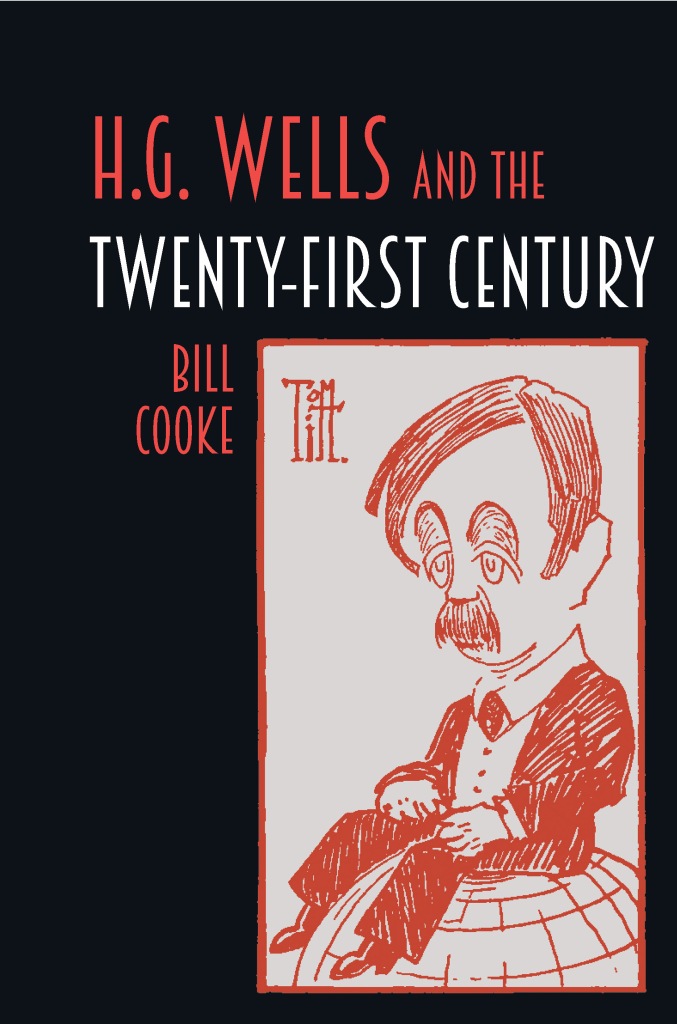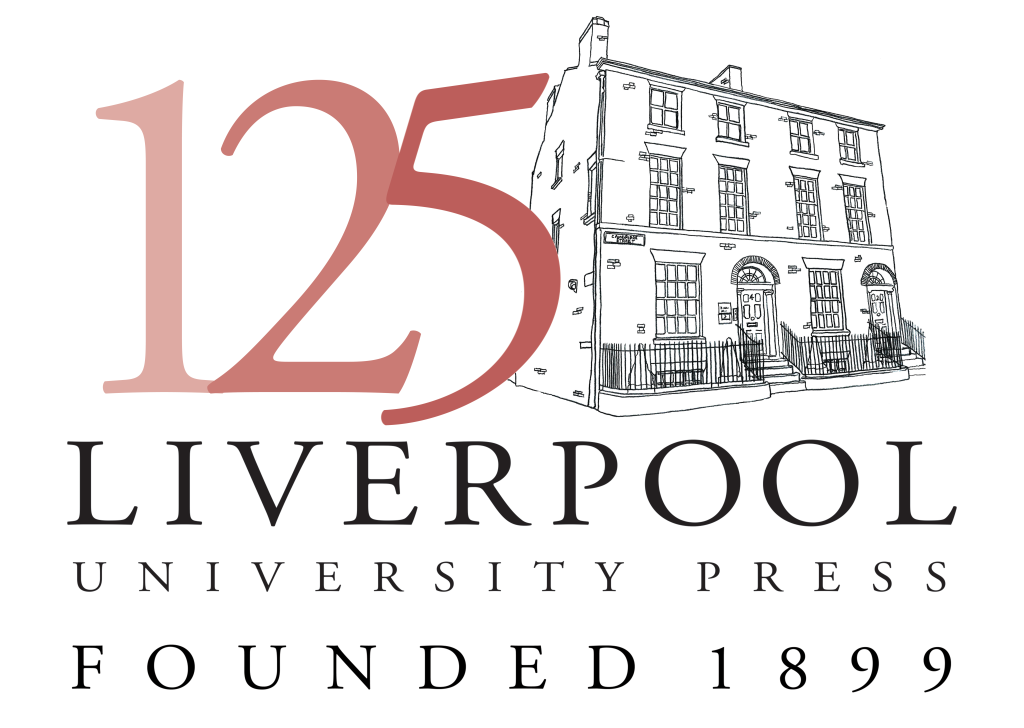Throughout his prolific writing career and since his death in 1946, H G Wells has been called many things: a novelist who betrayed his vocation, an imperialist, even a eugenicist. But what if we viewed Wells through his own eyes, as a public intellectual? In his new book, H G Wells and the Twenty-First Century, Bill Cooke does just that. In this blog post, Bill examines some of the most popular claims about Wells’s views on fascism, utopia, and science, and reveals how he foresaw our current era of ecological disaster.
Who cares about H G Wells in the twenty-first century? Wasn’t he a racist who supported eugenics? Didn’t he peddle over-confident utopias which flirted with fascism, and where science would save everyone and everything? One prominent critic, A N Wilson, acknowledges that whilst Wells wrote some good stuff early on, he then then spent forty years writing stuff that isn’t worth reading (A N Wilson, After the Victorians, 1901-1953, London: Hutchinson, 2005, p 65).
In order to investigate these claims, we must look at what Wells himself has said. And when we do, it in fact turns out that Wells was consistently anti-racist. Race hatreds, he wrote in 1931, are the product of ignorance. ‘They are stupidities, they are vulgarities that the schoolmaster should anticipate and destroy.’ (H G Wells, The Work, Wealth and Happiness of Mankind, Ch. 13, § 2, p 674). Later still, Wells attacked ‘claptrap phrases about backward races and inferior peoples (H G Wells, ’42 to ’44: A Contemporary Memoir, No. 74, p 187 & No. 102, pp 193-94). With regards to eugenics, Wells dismissed it as ‘a mere speculation of the theorists’ which was not supported by the science (H G Wells, The Rights of Man, London: Penguin, 1940, p 64). Adam Rutherford’s recent work on the subject is positive about Wells’s record, noting that he was ‘a longstanding opponent of eugenics’ (Adam Rutherford, Control: The Dark History and Troubling Present of Eugenics, London: Weidenfeld & Nicolson, 2022, p 83).
So, what about fascism? When the Nazis took over and started burning books, prominent among them were the works of H G Wells, who was on their list of people to eradicate once their conquest of England was completed. The fascists were right to be angry. Wells had been a consistent critic of fascism and Nazism from the beginning, frequently vilifying both Hitler and Mussolini and calling fascism ‘gangster systems’ (H G Wells, The Shape of Things to Come, London: Hutchinson, 1933, Bk. 2, § 3, p 158).
When we look at Wells’s utopias, an error that is often made is to mistake someone writing about a utopia with them recommending it. And many of the books thought of as utopias are nothing of the sort; they are books warning the reader what may come if we aren’t very careful. They’re better understood as histories of the future. It should never be forgotten that H G Wells is also rightly seen as a pioneer of the dystopian novel, most notably The Sleeper Awakes (1910). It is hard to write Wells off as a utopian fantasist when he also led the way in writing dystopian visions of how things can go wrong.
Regarding science, Wells always had a more ambivalent attitude than his critics have suggested. Wells valued science deeply but never made the mistake of supposing it to be an agency of salvation and maintained a healthy level of scepticism. Many of his stories featured scientists whose moral compass was in some way mangled. And in 1932, Wells stated: ‘Science casts a shadow wherever she distributes her benefits.’ (H G Wells, The Work, Wealth and Happiness of Mankind, London: Hutchinson, 1932, Ch. 4, § 5, p 170). Science is only as good as the people wielding it, and Wells consistently worried about the ape lurking just beneath the surface of Homo sapiens. Man, he wrote in 1931, ‘is an imperfect animal and never quite trustworthy in the dark.’ (What Are We to Do With Our Lives?, Ch. 8, p 46).
But which of Wells’s beliefs are of value to us today, in the twenty-first century? Importantly, he was a conservationist before even David Attenborough was born, and saw that ‘Man’, as he wrote in 1938, ‘is a biological catastrophe’ (H G Wells, Apropos of Dolores, Ch. 3, § 1, p 61). Wells predicted, and warned his readers about, the dangers of human-induced climate change in 1932. Before the First World War, Wells warned his readers:
Mankind used up material – insanely. They had got through three-quarters of all the coal in the planet, they had used up most of the oil, they had swept away their forests, and they were running short of tin and copper. Their wheat areas were getting weary and populous, and many of the big towns had so lowered the water level of their available hills that they suffered a drought every summer.
(H G Wells, The World Set Free, London: Macmillan, 1914, Ch. 5, § 5, p 264)
The quote Wells is best remembered for astutely recognises what others took a century to work out: ‘Human history becomes more and more a race between education and catastrophe.’ (H G Wells, The Outline of History, Bk. 9, Ch. 41, § 4, p 608). As he got older, Wells became more imbued with a sense of urgency that Homo sapiens needed to wake up to the dangers of their way of living. In a way now commonplace, Wells knew – in 1924 – where the problem lay:
As soon as the mass urgency subsides we tend to relapse into our own little personal lives of eating, drinking, and ‘having a good time’, or ‘getting on’, of posing to ourselves and others, of thinking and talking ourselves into agreeable states of self-approval, of doing pleasantly spiteful things to people we dislike.
(H G Wells, ‘The creative passion’, in A Year of Prophesying, p 266)
Perhaps, then, H G Wells serves as a prescient Cassandra to our current predicament, yet the account he gave of it was produced in works now dismissed as not worth reading. Well. I suppose that depends on one’s priorities.

H G Wells and the Twenty-First Century is out now in Hardback. Get 20% off RRP when you order directly from the Liverpool University Press website.
Bill Cooke was formerly a teacher of philosophy at Priestley College, Warrington. He is the author of numerous books including: A Rebel to His Last Breath: Joseph McCabe and Rationalism (2001); The Blasphemy Depot: A Hundred Years of the Rationalist Press Association (2004); A Dictionary of Atheism, Skepticism, and Humanism (2006); and A Wealth of Insights: Humanist Thought Since the Enlightenment (2011).

Follow us for more updates
Sign up to our mailing list
Twitter | Instagram
www.liverpooluniversitypress.co.uk
